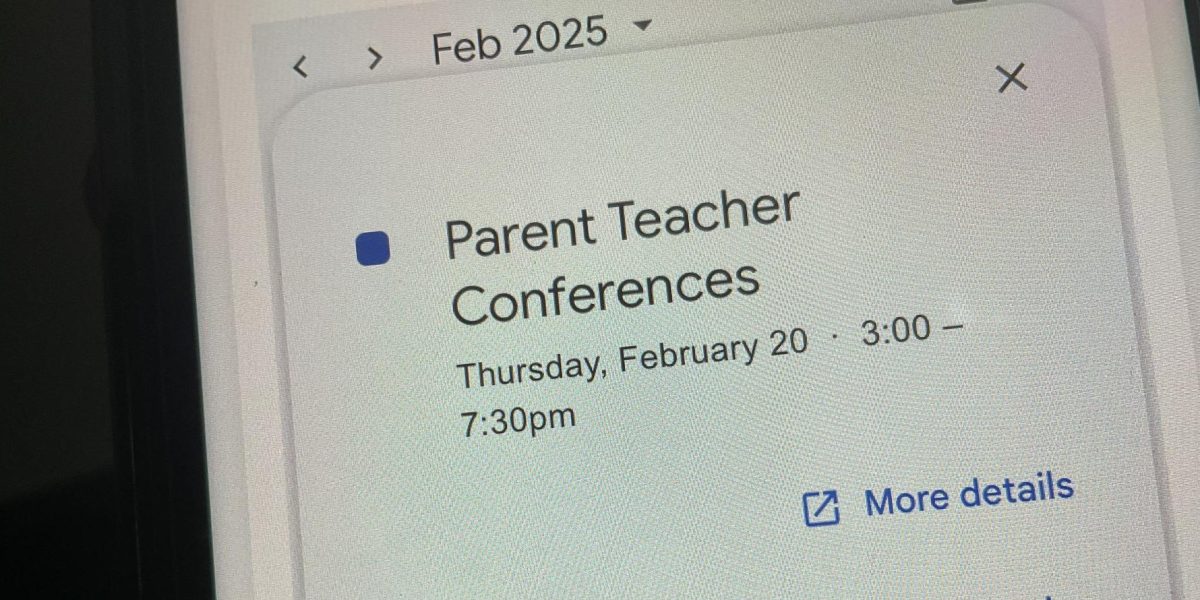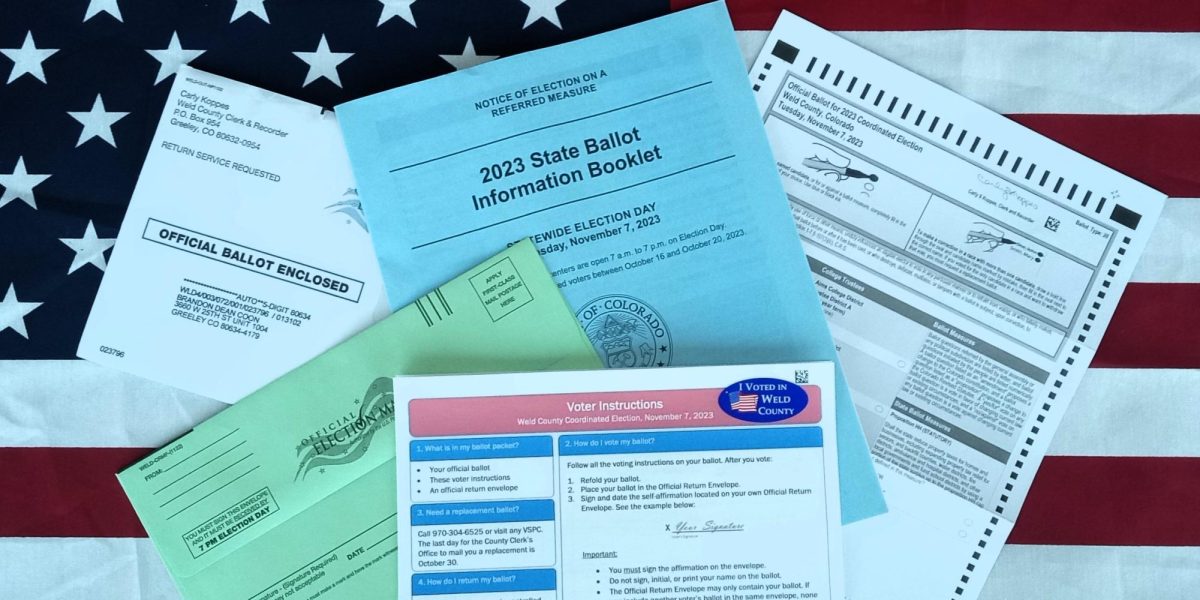In one week, the US government may shut down.
After passing a last-minute continuing resolution to keep the government funded on September 30, Congress must now pass new spending bills or another continuing resolution before Friday, November 17. If they don’t, the federal government will shut down, affecting tens of thousands of Coloradans. While both Democrats and Republicans want to prevent a shutdown, several political issues have complicated this year’s funding bills.
What are Government Shutdowns?
A government shutdown is exactly what it sounds like — it’s when the federal government halts most of its activity. The reason why shutdowns occur is simple: the government runs out of funding, so its various agencies close their offices because they can no longer pay their staff.
This doesn’t mean the government has no money — it just no longer has permission to spend the money it has. The government requires a yearly renewal of the laws that fund it, which are known as appropriations bills. Both chambers of Congress must renew twelve different appropriation bills before October 1 — the start of the government’s new fiscal year — so that the government can continue to be funded.
The current issue is that Congress hasn’t passed those bills yet. Minutes before the midnight deadline that, if missed, would shut down the government, Congress scrambled to pass a bipartisan Continuing Resolution (CR) to fund the government until November 17. The purpose of the CR is to extend the funding deadline, and the CR that passed in the final hours of September 30 moved the critical deadline to November 17.
What Happens During a Government Shutdown?
To avoid a government shutdown, Congress must either pass all twelve appropriation bills or another CR to further delay the funding deadline.
If Congress is unable to do this, a shutdown will occur at the stroke of midnight and almost every person, place, or program that is funded by the federal government will stop immediately. Thousands of government employees will be furloughed, meaning that will keep their jobs but will stop working and stop receiving pay during the shutdown. Essential services will continue running — American soldiers will keep their posts and federal prisons will still be guarded — but these working employees will not be paid for their work until after the government is funded again.
Note that this is a federal shutdown — Colorado’s state and local governments will continue to function (so no, school won’t be canceled during a shutdown). Focusing on just our state, here’s what to expect during a shutdown:
- The Unaffected: All state-funded entities will still operate, including the Department of Motor Vehicles (DMV) and Colorado permit offices. The United States Postal Service (USPS) and all of its workers and post offices will also be unaffected, as the post office is self-funded and doesn’t receive any taxpayer money. Unless the shutdown is prolonged for more than a month, Coloradans who receive federal assistance from Social Security, Medicare, Medicaid, TANF, and SNAP will still receive their benefits (as these programs are partially funded by state funds). As for students, free meals at school will continue until federal funding runs out.
- The Back Paid: The federal employees who will still work without pay are mostly those in charge of citizen safety. This includes the federal workers at DIA and other airports, including air traffic controllers, Homeland Security officers, and customs officials. Federal law enforcement agents will also continue working, and federal courts like the 10th Circuit Court of Appeals in Denver will continue operations for two weeks before their employees are furloughed. Employees in federal prisons like ADX Florence outside of Canon City and federal hospitals will also keep working. The 53,000 active duty personnel at Colorado’s military bases will continue working without pay, as will the US Border Patrol and Secret Service. An anomaly on this list is the IRS, whose employees will still conduct audits in Colorado during a shutdown.
- The Furloughed: As soon as a shutdown occurs, Colorado’s four national parks, five national monuments, two national historic sites, and four historic trails and recreation areas will close, though Colorado Governor Jared Polis has been working with the state congress to keep these federal lands funded during a potential shutdown. As many as 44,000 other federal employees and contractors working in Colorado could be furloughed — worse, these contractors could lose funding for their government projects and never return to work after the shutdown is over. Other federal agencies that would suspend or delay inspections in Colorado are the FDA, EPA, USDA, and OSHA, meaning that Coloradans have a higher risk of encountering food poisoning, workplace accidents, and ecological disasters. If one of those ecological disasters grows to a large-scale catastrophe — like the 2021 Marshall Fire or 2015 contamination of the Animas River — Colorado will have little to no relief funds from FEMA. For seniors heading to college next fall, applications for FAFSA, federal loans, and PELL grants will be suspended until the shutdown is lifted.
Why Can’t Congress Get the Government Funded?
In short, political division in the House of Representatives, both between the Democrats and Republicans and between factions of the Republican party.
As outlined in our previous shutdown article, the Republican majority in Congress received pushback from their more conservative members in the Freedom Caucus, who wouldn’t pass any appropriations bills unless they passed a bill that would resume the expansion of the Mexican border wall started by former president Donald Trump, cut all further aid to Ukraine, and cut an additional $120 billion out of the proposed budget. Since the Republicans only have a five-seat majority in the House, the members of the Freedom Caucus have shot down Republican-backed bills all year in order to get concessions from the more moderate party leaders.
While kowtowing to the Freedom Caucus could be avoided by the moderates working with the Democrats on a bipartisan bill, relations are very strained between the two parties as a result of the appropriations fight happening in the first place. Earlier this year, then-House Speaker Kevin McCarthy (R-CA 20) made a deal with President Biden to raise the debt ceiling in exchange for the 2024 budget to match the 2023 budget.
Yet in July, the Freedom Caucus members began attaching conditions to the spending bills that had nothing to do with the budget and started introducing cuts to the budget that McCarthy had promised would remain the same. Ever since, the Democrats, united under House Minority Speaker Hakeem Jeffries (D-NY 8), have opposed all budget cuts as they believe that any deal made with Republicans will not be honored.
How is This Funding Battle Different?
Budget fights between parties and party factions are nothing new for Congress, but several factors have complicated the current budget fight. The most obvious is the change of leadership that happened in the House. After weeks of making little progress with the Freedom Caucus on the appropriations bill, McCarthy introduced the previously-mentioned CR that moved the funding deadline to November 17. While the Democrats and moderate Republicans passed the bill, the bill was vetoed by the Freedom Caucus.
This led Matt Gaetz (R-FL 1) to introduce a motion to vacate the House speakership — basically, to kick McCarthy out as Speaker. McCarthy was voted out of his role on October 3 by the entirety of the Democrats — who felt McCarthy betrayed them by reneging on the debt ceiling agreement — and eight members of the Freedom Caucus — who felt McCarthy betrayed his party by working with Democrats to pass the CR.
This created a shift in focus for the House: instead of using the 45-day delay to work on passing appropriations bills, much of that time was spent trying to elect a new House Speaker. After 21 days without a Speaker, the House Republicans finally came together on October 25 to elect Mike Johnson (R-LA 4). While not a member of the Freedom Caucus, Johnson won their support since he shares many of their far-right policy views.
Domestic matters aren’t the only complication. On October 7, Hamas committed a terrorist attack against Israeli citizens, resulting in the current violence occurring in Israel and Palestine. The United States has been a political and military ally of Israel since its creation, so at the onset of the fighting, President Biden asked Congress to honor various treaties by sending aid to Israel. Aid means money (in this case, $107 million), so this issue has further complicated the passage of the appropriations bills. Dozens of Republicans who advocated cutting off Ukrainian aid want to aid Israel but don’t want to appear hypocritical to their voters (as every member of the House is up for election next year). Other Republicans want to tie providing aid to cutting domestic spending, something that has never been done before. Even Democrats are starting to see fracturing in their party, as some members want to see the US break ties with Israel and aid Palestine instead.
So Will We Have a Shutdown?
We really don’t know. While Mike Johnson wants cuts to the budget and increased border security, he also wants the government to be funded. He is also mindful that the last Speaker was removed by a handful of upset party members, and since it only takes one member to move to vacate the speakership, Johnson is weary of giving his fellow Republicans a reason to remove him.
Since Johnson can’t get all the Republicans to support a spending bill, he currently has the same two paths before him that McCarthy did: let the government shut down or pass another CR to delay the spending deadline again. While passing a CR with Democratic support led to McCarthy’s ouster, this is actually less likely to happen: House Democrats are open to working with Johnson so long as he keeps his promises, and the Freedom Caucus is willing to give Johnson more time to grow into the role of Speaker.
One solution supported by many Republicans is a partial resolution: Republicans pass the appropriation bills they can agree on and pass a CR for the rest of the twelve. This “laddered approach” would minimize the effects of a future shutdown and show the American public that the Republican House can accomplish legislation, as the party has received recent criticism over their Speaker elections and the lack of legislation passed since January (this Congress has only passed 36 bills as opposed to the 1,234 passed by the previous Congress).
Of course, any appropriations bill that passes the House also has to be passed by the Senate and signed into law by President Biden. The Senate is controlled by a Democratic majority, and even Senate Republicans like Senate Minority Leader Mitch McConnell (R-KY) have criticized the measures proposed by House Republicans. This will be Mike Johnson’s ultimate test of leadership — not just finding compromise inside his party but across party lines. By next week, America will see if a bipartisan solution can be found or if the government is closed for business.




















































